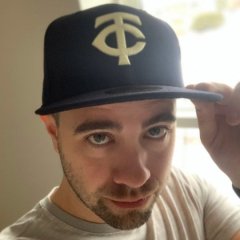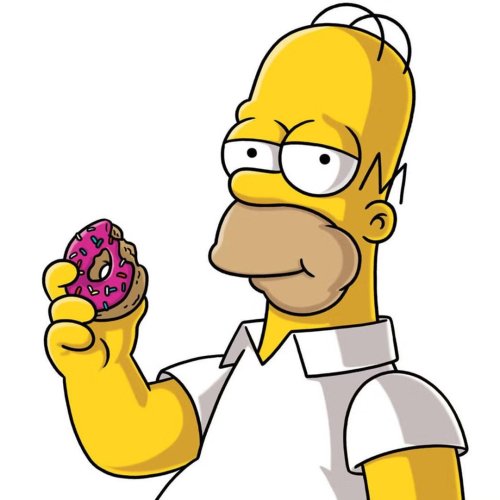
Twins Video
Earlier this week, Ken Rosenthal of FOX Sports reported that the two sides had reached an impasse in their negotiations with "no momentum toward deal." That's an ominous sign at this late stage of the offseason and Rosenthal later wrote that the Dodgers were "back to square one in their search for a second baseman."
Derek Falvey and Thad Levine took over the Twins front office with a tremendous opportunity to leverage a high-quality player at peak value in order to bolster the organization's lackluster pitching corps. But it appears that timing may have been against them.
For one thing, they've been unable to develop much of a market for Dozier. The list of contenders with high-caliber young arms and a need for an impact hitter at second base was short to begin with, and shrunk when the Mets decided to bring back Neil Walker.
Los Angeles was a very obvious fit from the start but unfortunately, no others really emerged. While a few clubs were loosely connected with Minnesota, it was evident all along that no one was going to press hard enough to create a bidding war. This placed the Twins at a rather disadvantageous negotiating position.
Beyond these isolated circumstances, there is a larger trend at play. Baseball teams, in general, seem to be losing their thirst for power. It's the name of Dozier's game, but the home run doesn't carry the same appeal it once did.
Consider this: Most expected Edwin Encarnacion, who ranks second in baseball since 2012 in both homers and RBI, to land a deal in excess of $100 million as a free agent this offseason. Instead, he settled for $60 million from Cleveland. His former Toronto teammate Jose Bautista, another of the game's premier power bats, has yet to find a job. Same for Mark Trumbo, whose 47 bombs led the majors in 2016.
In other years, it would feel crazy that a second baseman coming off a 42-homer campaign wouldn't generate an aggressive market. In this current environment, though, it's kinda par for the course.
Every report on the matter has made sure to emphasize that trade discussions are not considered dead. Levine said this week that a point might come where the Twins would stop initiating calls, but they would never stop listening.
However, Rosenthal's note about how the Minnesota front office "wanted to give Dozier a heightened peace of mind about his status with the club" matches a similar relay from Mike Berardino of the Pioneer Press a week earlier.
Reading between the lines, one can infer that Falvey and Levine have informed Dozier he'll be back in 2017 barring an unforeseen development. They're wise to keep their antennas up but at this point, it's tough to see what would change to precipitate a deal. More than a month after discussions began, there has been little in the way of evident progress.
The Dodgers might feel they've done their part by offering up Jose De Leon, who is viewed by some as a top five prospect in the entire game. The Twins, meanwhile, are understandably opposed to giving up their best and most popular player for a single lottery ticket whose future could be thrown into question with a reoccurrence of his shoulder soreness, or an extension of his initial big-league struggles.
It looks like the trenches that have been dug here. And while it's odd to see no accord despite such a natural match, it's not like either team is in a corner.
Dodgers president Andrew Friedman, who gained notoriety while running operations for the Tampa Bay Rays, understands as well as anyone the value (and fickleness) of cheap young pitching talent. He'll be content keeping his full arsenal of young hurlers and looking elsewhere for an offensive boost. Maybe someone like Bautista could be an option.
Meanwhile, the Twins can hang on to Dozier, who still doesn't turn 30 until May. He's in his prime and the possibility exists that we still haven't seen his best campaign. With two years left on his contract, he figures to retain strong value going forward, and if Minnesota surprisingly jumps out to a competitive start this season, he'll almost certainly be a big reason for it.
That's a precarious gamble, though. Outside of adding Jason Castro, the Twins haven't done much to meaningfully upgrade a 100-loss team. It's reasonable to expect significant improvements from a contingent of returning players, but gaining 20-plus wins on that basis is a tough sell. If the shiny new front office brings back a largely untouched roster in 2017, the luster is going to quickly wear off in the eyes of fans and season ticket holders.
So if Dozier stays, what's the plan? Spend some money to supplement the team around him and hope to catch lightning in a bottle? That definitely would not jibe with Falvey's initial talk of building for the future and looking at the big picture.
But then again, you've got to work with what you've got. All that the Chief Baseball Officer and his GM can do is play the hand they're dealt. Now, we'll see if they push in their chips or continue to slow-play and straddle the line between trying to rebuild or retool.
MORE FROM TWINS DAILY
— Latest Twins coverage from our writers
— Recent Twins discussion in our forums
— Follow Twins Daily via Twitter, Facebook or email
— Become a Twins Daily Caretaker






Recommended Comments
Join the conversation
You can post now and register later. If you have an account, sign in now to post with your account.
Note: Your post will require moderator approval before it will be visible.